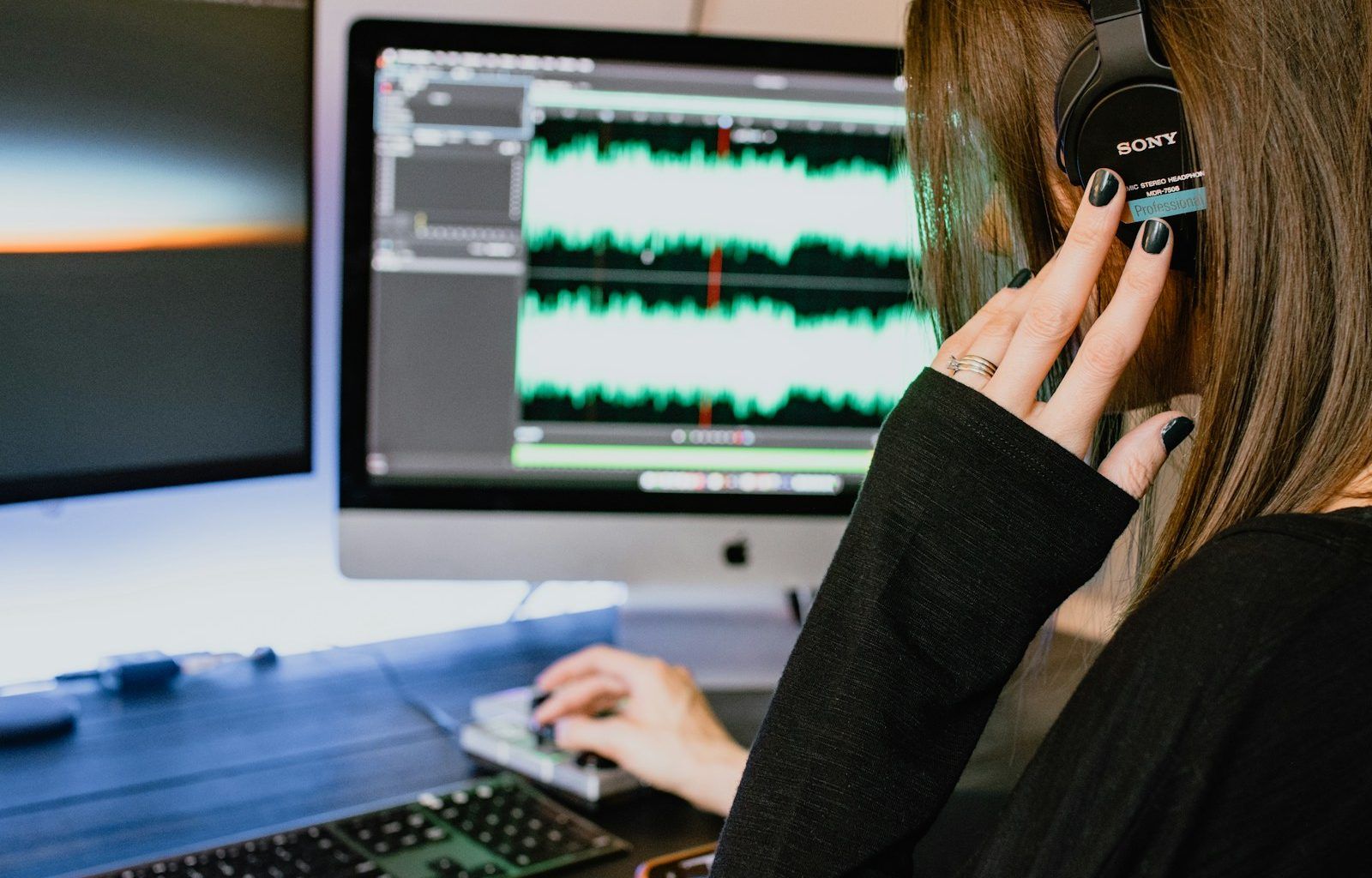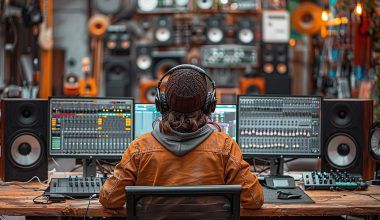Audio mastering definition might sound like a fancy technical term, but it’s actually an essential part of making your music or audio projects sound polished and professional. So, what exactly does audio mastering definition? In simple terms, audio mastering is the final step in the music production process. It’s where all the hard work you’ve put into recording, editing, and mixing comes together for that final layer of polish.
Mastering ensures that your music or audio sounds its best on all types of devices and platforms. Whether someone listens through high-end studio speakers, a pair of headphones, or even a smartphone, the goal of audio mastering definition is to deliver a consistent and enjoyable listening experience. This step involves adjusting levels, balancing frequencies, and enhancing the overall sound to create a finished product that’s ready for distribution.
Why is Audio Mastering So Important?
Imagine you’ve written a beautiful story. You’ve checked the grammar, made sure the plot makes sense, and added some descriptive language. But before publishing, you’d want someone to do a final proofread to catch any tiny mistakes and make everything shine. That’s what mastering does for music.
Mastering makes sure your tracks sound cohesive when played back-to-back. It irons out any inconsistencies, balances the volume across all songs, and ensures that your audio meets industry standards. Without mastering, your track might sound amazing on one set of speakers but completely fall apart on another. Mastering fixes that.
The Audio Mastering Process
So, how does audio mastering actually work? While the process might seem complicated, it usually involves the following steps:
- Critical Listening
The first step in mastering is listening carefully to the mixed track. This helps the mastering engineer identify any issues, such as frequency imbalances, excessive noise, or dynamic range problems.
- EQ Adjustments
Equalization (EQ) is used to balance the frequency spectrum. This step ensures that the bass, midrange, and treble frequencies work together harmoniously. If there’s too much bass or harsh treble, the engineer will adjust accordingly.
- Compression and Limiting
Compression and limiting are used to control the dynamics of a track. Compression helps smooth out volume differences, while limiting ensures the overall loudness stays within acceptable limits.
- Stereo Imaging
Mastering also involves enhancing the stereo image, which is how the audio is spread across the left and right channels. A well-mastered track will feel balanced and immersive.
- Adding Final Touches
Sometimes, mastering includes subtle enhancements like reverb, harmonic saturation, or slight volume adjustments to give the track that extra bit of magic.
- Preparing for Distribution
Finally, the track is prepared for its final format, whether it’s for streaming, vinyl, CDs, or digital downloads. This includes setting the correct bit rate, sample rate, and file format.
Who Needs Audio Mastering?
Whether you’re an independent artist, a podcast producer, or a video creator, mastering is crucial if you want your work to sound professional. Even if you’re on a tight budget, there are affordable options like online mastering tools or entry-level mastering services.
For professional music producers, mastering is non-negotiable. It’s the key to making tracks competitive in the industry. Similarly, podcasters benefit from mastering because it ensures their episodes sound consistent from one to the next. Even video creators need audio mastering to ensure the soundtrack complements the visuals without overpowering them.
Common Misconceptions About Audio Mastering
Some people confuse mixing and mastering. While both are important, they’re not the same. Mixing involves combining individual tracks into a cohesive piece, like adjusting the volume of vocals versus instruments. Mastering, on the other hand, focuses on the overall sound of the final mix.
Another misconception is that mastering can fix a bad mix. While mastering can enhance a mix, it’s not a magic wand. If the original mix has significant flaws, those issues will carry over into the mastered version. It’s always best to ensure the mix is as good as possible before sending it for mastering.
DIY Mastering vs. Professional Mastering
With today’s technology, it’s possible to do some level of mastering on your own. Software like iZotope Ozone and LANDR offer tools that make mastering accessible to beginners. However, there’s a reason why professional mastering engineers are still in high demand. Their trained ears and expertise can make a noticeable difference in the quality of the final product.
If you’re just starting out, DIY mastering can be a good way to learn the basics. But if you’re releasing a project you really care about, investing in professional mastering is usually worth it.
How to Choose a Mastering Engineer
If you decide to go the professional route, choosing the right mastering engineer is crucial. Here are some tips:
Listen to Their Portfolio: Most engineers will have samples of their work available. Make sure their style aligns with your vision.
Check Reviews and References: Look for feedback from other artists who’ve worked with them.
Communicate Clearly: Explain what you’re looking for and ask questions about their process.
Consider Your Budget: Mastering services can range from affordable to expensive. Find someone who fits your price range without sacrificing quality.
How Audio Mastering Has Evolved
Over the years, the tools and techniques for mastering have changed significantly. In the early days, mastering was done using analog equipment. Engineers worked with physical tapes and vinyl records, making adjustments manually. Today, digital tools have made mastering more precise and accessible.
That said, many engineers still use a combination of analog and digital tools. Analog gear is often praised for its warm, natural sound, while digital tools offer flexibility and accuracy. This hybrid approach combines the best of both worlds.
Final Thoughts on Audio Mastering
audio mastering definition is an art and a science. It’s the final step that takes a good track and makes it great. Whether you’re a musician, podcaster, or video creator, understanding the basics of mastering can help you produce work that stands out.
While it might seem like a small detail, mastering has a huge impact on how your audio is perceived. So, next time you’re finishing up a project, remember to give mastering the attention it deserves. It’s the step that can take your audio from good to unforgettable.
Related Articles:
For further reading, explore these related articles:
- Taylor Swift’s Midnights Songs: A Musical Story You’ll Love
- Hootie and the Blowfish: The Band That Stole Hearts Worldwide
For additional resources on music marketing and distribution, visit DMT RECORDS PRIVATE LIMITED






